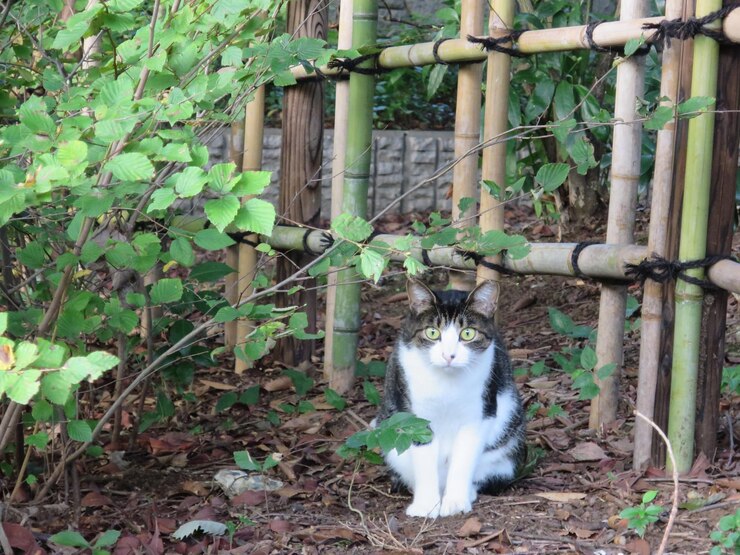While bamboo isn’t toxic to cats, it’s important to distinguish between true bamboo and lucky bamboo (Dracaena sanderiana), which is actually toxic to cats.
True Bamboo:
- Safe for cats to nibble
- Offers no nutritional value
- May cause minor stomach upset if eaten in large amounts
- Can be a choking hazard if pieces are too big
Lucky Bamboo (NOT Safe):
- Toxic to cats
- Can cause:
- Vomiting
- Drooling
- Stomach pain
- Loss of appetite
- Dilated pupils
Can Cats Eat Bamboo
Yes, cats can safely eat true bamboo (from the Poaceae family), as it’s non-toxic to them. However, not all plants labeled “bamboo” are safe. For example, lucky bamboo (Dracaena sanderiana), a popular indoor plant, is toxic to cats and can cause symptoms such as vomiting, drooling, and lethargy if ingested. Read Can Cats Eat Oranges?
Types of Bamboo and Their Safety for Cats
The term “bamboo” can refer to different plants, each with unique effects on cats. True bamboo, or bamboo from the Poaceae family, is non-toxic to cats. This is the type commonly used in landscaping and is safe for cats to be around. However, lucky bamboo (Dracaena sanderiana), a common decorative plant, is toxic to cats. Lucky bamboo ingestion can lead to symptoms like vomiting, drooling, and loss of appetite in cats. Read Can Cats Eat Eggs?
For a comprehensive list of pet-safe plants, check the ASPCA’s plant safety guide here.
What Happens if a Cat Eats Bamboo?
When a cat eats true bamboo, the effects are usually mild and temporary. Most cats might experience minor digestive upset, including slight stomach discomfort or occasional vomiting, especially if they consume large amounts. Since bamboo is essentially a grass, small amounts typically pass through their system without serious consequences, though the plant offers no nutritional benefits for your feline friend.
However, the situation becomes more serious if your cat consumes lucky bamboo, which is actually part of the Dracaena family and toxic to cats. If your cat eats lucky bamboo, they may show symptoms like excessive drooling, vomiting, enlarged pupils, and loss of appetite. These symptoms usually appear within a few hours of consumption and require immediate veterinary attention.
The most common physical risk from true bamboo comes from its physical structure rather than any toxic properties. Cats might choke on bamboo pieces or suffer from intestinal blockage if they swallow large chunks.
Read Also Can Cats Eat Pineapple?
Is Bamboo Beneficial for Cats?
True bamboo doesn’t harm cats, but it also doesn’t offer significant nutritional value. Cats are obligate carnivores and don’t process plant nutrients as effectively as other animals. Although some cats may chew on plants like bamboo for fiber, which can aid digestion, it’s best to give them cat-friendly plants for this purpose. Read Can Cats Eat Cheese?
Cat-Safe Alternatives to Bamboo
If your cat shows interest in bamboo, it’s better to provide them with safer alternatives like:
- Cat grass
- Catnip
- Cat mint
- Commercial cat greens
If your cat eats any lucky bamboo, contact your vet immediately. For regular bamboo consumption, monitor your cat for any digestive issues and remove the plant if necessary.
For more ideas on safe plants for cats, check resources such as the Pet Poison Helpline and ASPCA’s pet-safe plant guides.
Safety Tips
- Keep any bamboo plants out of easy reach
- Watch for signs of chewing or plant damage
- Remove any fallen pieces promptly
- Consider cat-friendly alternatives like cat grass
Conclusion
To sum up, true bamboo is generally safe for cats, while lucky bamboo is toxic and should be kept out of reach. For any questions or concerns, consult your veterinarian or use reputable sources like ASPCA and the Pet Poison Helpline.
Further Readings
Can Cats Eat Onions? A Deadly Threat



